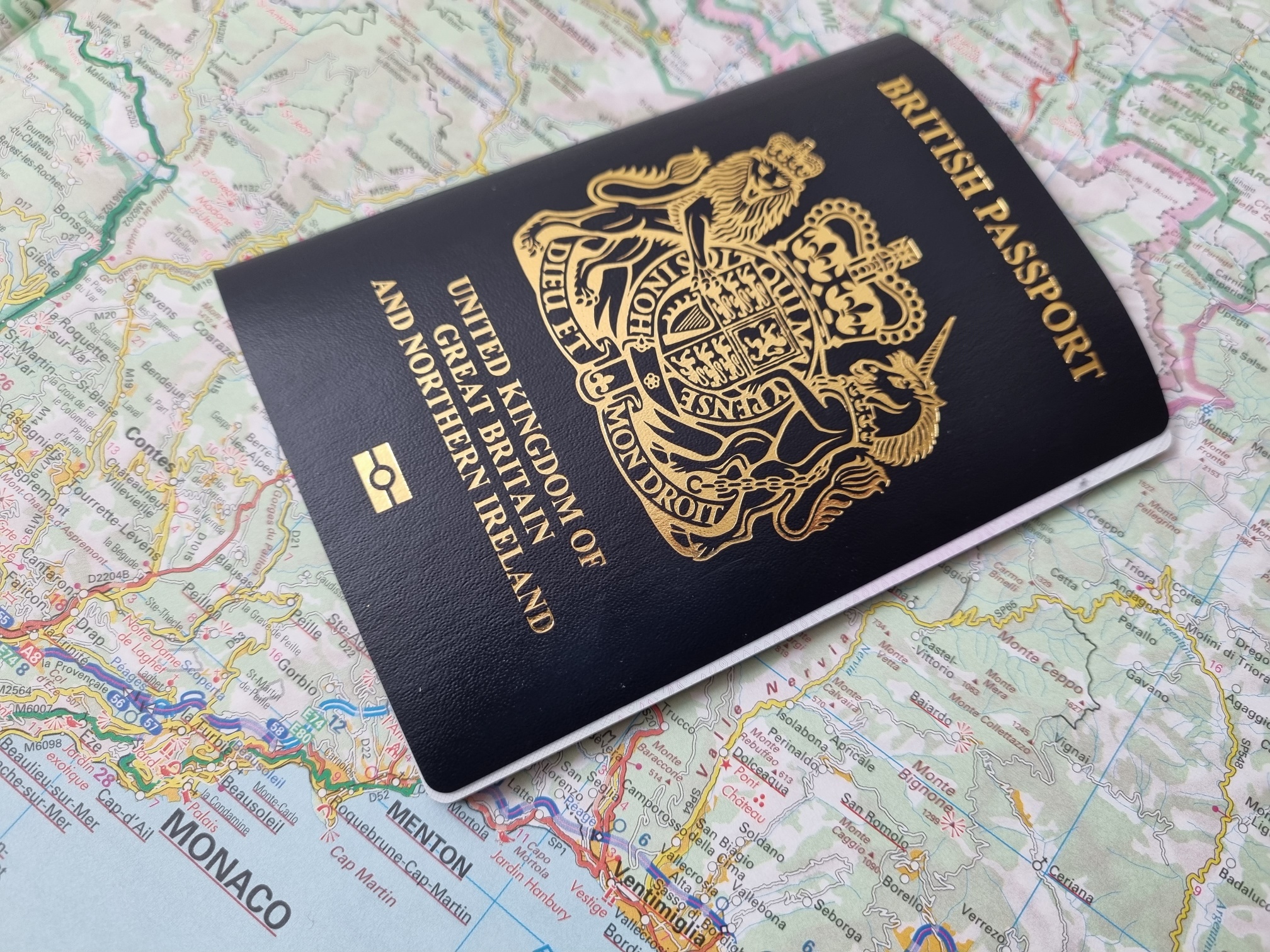Contact us :+91-70 335 335 70
- Monday - Sunday 10:00 am - 07:00 pm
- Third Floor, Plot No. 55, Sector 12-B, Dwarka, New Delhi, 110075



The United Kingdom of Great Britain and Northern Ireland is known as the United Kingdom or Britain. The United Kingdom, made up of England, Scotland,
Wales and Northern Ireland, is an island nation in northwestern Europe.
The United Kingdom of Great Britain and Northern Ireland is a unitary state with a constitutional monarchy.
• The head of state of the United Kingdom is the monarch (Queen Elizabeth II).
• The head of government is the prime minister.
The most well-known and visited of all the royal properties, Buckingham Palace has remained the official London residence of the United Kingdom’s monarchs since 1837.
The United Kingdom (UK) is incredibly diverse; from 900-year-old cathedrals to cutting edge technological innovations, from dynamic cities to peaceful green hills and everything in between, there is something for everyone in the UK. Here are some of the reasons to recommend the UK.
The UK is home to millions of people from all around the world. The UK is a friendly, welcoming place for people of all countries, cultures and faiths.
There are currently over 600,000 international students from more than 200 nations studying a higher education programme in the UK. In 2019-20, over 500,000 more students came to do an English language course and over 50,000 studied at UK independent schools.
Within UK HE institutions 22% of all students are international, with an even split of undergraduate and postgraduate students. International students make up 40% of all postgraduate research students and over 30% of university academics.
The UK is proud to be a modern society that embraces, respects and celebrates all ways of life. Everyone is welcome. As an international student in the UK, you’ll make friends from all over the world and feel at home wherever you go.
On a single university campus there could be students from more than 150 different countries, all contributing to its rich, diverse, multicultural society.
Multiculturalism has benefited the UK in all areas from industry and commerce to music, art, sport, science and literature. It has brought fresh ideas, new skills and cultural diversity to the UK.
As a multi-faith society, students of all religions can expect to feel welcome in the UK, along with plenty of places to practise their faith. With a history of multiculturalism dating back hundreds of years, we have well-established communities representing all major religions, and a deep commitment to supporting students’ religious needs on campus.
Most schools, colleges and universities have prayer rooms that anyone can use, as do most public places, such as hotels, hospitals and airports. There are also many organisations representing students of a particular faith, often as part of the students’ union, who can provide information and support from day one.
Students are often concerned about money and living costs, but they do not need to be a worry. Before leaving for the UK, students should learn how to estimate expenses, decide how they will pay for them, arrange a bank account, and decide how they will budget their money from day to day.
When comparing living costs between the UK and other countries it is worth remembering that UK courses tend to be shorter at both undergraduate and Master’s level than in other countries, so accommodation and living costs are greatly reduced (sometimes by 50% at Masters level). Many institutions send students a pre-departure guide that includes information on living costs, accommodation and travel; these are also available on institution websites.
International undergraduate tuition fees vary from £11,400 – £38,000. The average cost is estimated to be around £22,200 per year.
Typically, undergraduate degree courses in England, Wales, and Northern Ireland last for three years or four in Scotland.
International postgraduate tuition fees vary from £9,000 – £30,000. The average cost is estimated to be around £17,109 per year.
Many postgraduate degree courses in the UK can be completed in one year of full-time study. This has financial and career benefits. A one-year master’s programme usually has fewer and lower associated costs. It offers the option of faster entry or re-entry into employment than a traditional two-year master’s programme.
As tuition fees vary by course and institution, we recommend you consult the website of the university or college you are applying for detailed information.
The United Kingdom attracts people from all over the world with its mix of vibrant cities, rich history and gentle countryside complementing its range of diverse lifestyles and cultural attractions.
The UK consists of England, Scotland, Wales and Northern Ireland. Each region has its own unique identity with dynamic, modern cities, as well as stunning countryside and coastlines.
One of the only things you can count on where the UK’s weather is concerned is its unreliability.
Despite the changeable nature of the weather, there are four distinct seasons in the UK: winter, spring, summer and autumn. Each season brings its own unique style from fresh spring blossoms to long summer nights and warm autumnal leaves.
On the whole, the climate is fairly balanced with temperatures rarely falling below -5°C or rising much above 32°C.
One of the most noticeable climatic features in the UK is long summer days and short winter ones: it gets dark by 16:00hrs in December, but will stay light until 22:00hrs in July.
Stages in UK education
Types of school
In general there are two types of school in the UK:
State schools
Also known as comprehensive schools, state schools are open to students of all abilities, are government-funded and free.
Independent schools
Sometimes known as private school or public schools, independent schools manage their own entry requirements and require students to pay fees to attend.
Stages of education
There are several stages of education within the UK. The first stage usually starts from three or four years old and can continue to the age of eighteen and over.
Primary and Preparatory education
Pre-school education is available in both the independent and the state systems. Many children start their education at the age of three or four at a nursery school or in the nursery class at a primary school. Most UK children begin formal education when they go to primary school at the age of 5 and generally move to secondary school at the age of 11 or 12. Children in Scotland complete 7 years of primary school, starting in Primary 1 (P1), going up to P7 (the equivalent of Year 7 in England).
In the independent system, preparatory education is available for children aged 5 to 11, and in some also to age 13. At age 11 and/or 13 students prepare for entrance exams to their next chosen independent school, or they may stay in their current school if it goes through to sixth form.
Some international students join the school at the age of 7, often as live-in boarders (residents), and then transfer to a secondary school in the independent system when they are either 11 or 13.
Secondary education
Most pupils begin their secondary education at the age of 11 (Year 7), but in some independent schools pupils may join the school when they are 13 years old (Year 9).
Scottish students begin their secondary education at the age of 12. After this, they study six years of secondary school from Secondary 1 (S1) to S6 (equivalent to Y8 to Y13 in England). Secondary schools in Scotland are also known as high schools or academies.
Many international students enter the UK secondary education system when they are either 11 or 13, mostly attending independent boarding schools.
College, in contrast to university, is an educational institution that offers further education courses leading to specific degrees or qualifications.
College qualifications in UK include the followings:
• Diploma
• Foundation Degrees
• General Certificate of Secondary Education GCSE
• Higher National Certificate HNC
• Higher National Diploma HND
• International Baccalaureate
The benefits of studying at College in UK:
Despite only a minority of students in the UK prefer to attend higher education in college over the university, the benefits are many:
• Lower-tuition fees
• Less overloaded classes
• The opportunity to study from home and reduce additional expenses
• Flexible study programs, including part-time courses
• Opportunities to move on to university degrees
• More individual support
University
The University in UK is a recognized educational organization which has the legal right of issuing higher education degrees.
Typically, study programs at UK universities lead to the following degrees
• Undergraduate degrees
• Postgraduate Degrees
However, some universities in UK run colleges which offer further education courses like foundation degrees to prepare students to enter the regular university degree.
• Some of these colleges act as branch colleges of a larger university body.
• The Oxbridge (Oxford & Cambridge)universities are an example of this.
• Both universities have an extensive network of branch colleges in different locations.
A student visa issued for full-time degree level studies allows you to work for a maximum of 20 hours per week during term-time. This is a maximum of 20 hours in total in any one week, including paid or unpaid work and for one or more organisation. The 20 hours cannot be averaged over a longer period.
From summer 2021, after successful completion of an undergraduate or master’s degree, student will be able to benefit from two years post study work visa in the UK, through the new Graduate Route.
The Universities and Colleges Admissions Service (UCAS) is a UK-based organization whose main role is to operate the application process for British universities.
UCAS also provides information, advice, and admissions services for
The student can make up to 5 choices on the UCAS Undergraduate Application.
Also, the student can apply to more than one course at the same university.
For most current applications, the cost per student is £20 to apply for a single course, or £26 for two or more courses (as of 2021 entry)
Scotland and Wales – both taught and research courses leading to a variety of qualifications – including MA, MSc, MBA and LLM.
of the course
number and documents used to obtain CAS
certificate (if required)
Additional documents may also be needed if the student is
• The average GMAT accepted score across universities is 540.
• Average GRE score is 155 for Verbal, 167 for Quantitative and 5.0 for Writing.
